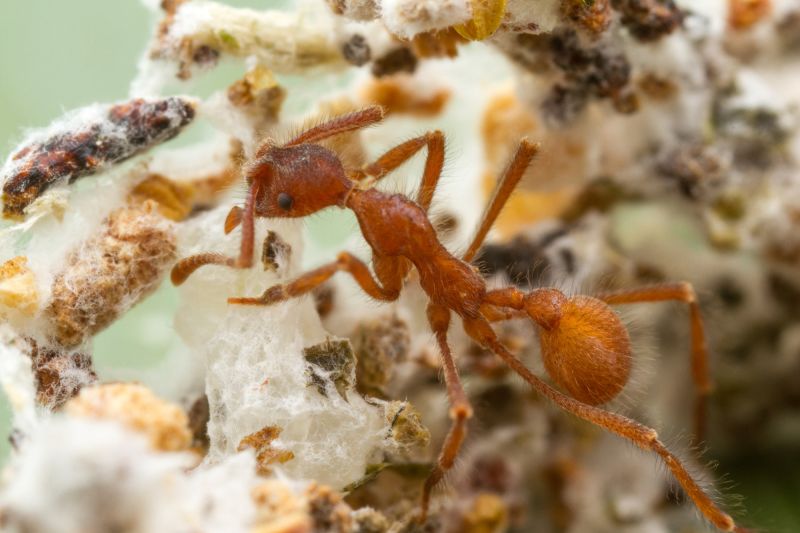Ants Began Farming Fungi 66 Million Years Ago After Asteroid Impact
New research reveals that ants started cultivating fungi around 66 million years ago, coinciding with the asteroid impact that led to the extinction of dinosaurs. This event created favorable conditions for fungi to thrive on decaying plant material, which ants then exploited as a food source.
The study, published in the journal Science, analyzed genetic data from hundreds of fungal and ant species to establish an evolutionary timeline. It found that ants and fungi have been intertwined for 66 million years, with ants developing advanced agricultural practices around 27 million years ago as the climate cooled and habitats changed.
Leafcutter ants, for example, harvest leaves to cultivate a specific type of fungus that provides them with a vital food source. This relationship is mutually beneficial, with ants protecting and nurturing the fungi in exchange for sustenance.
Entomologist Ted Schultz, who led the study, notes that ants have been practicing agriculture and fungus farming for much longer than humans have existed. The findings highlight the intricate and long-standing relationship between ants and fungi, offering insights into how ecological shifts led to the evolution of ant agriculture.

